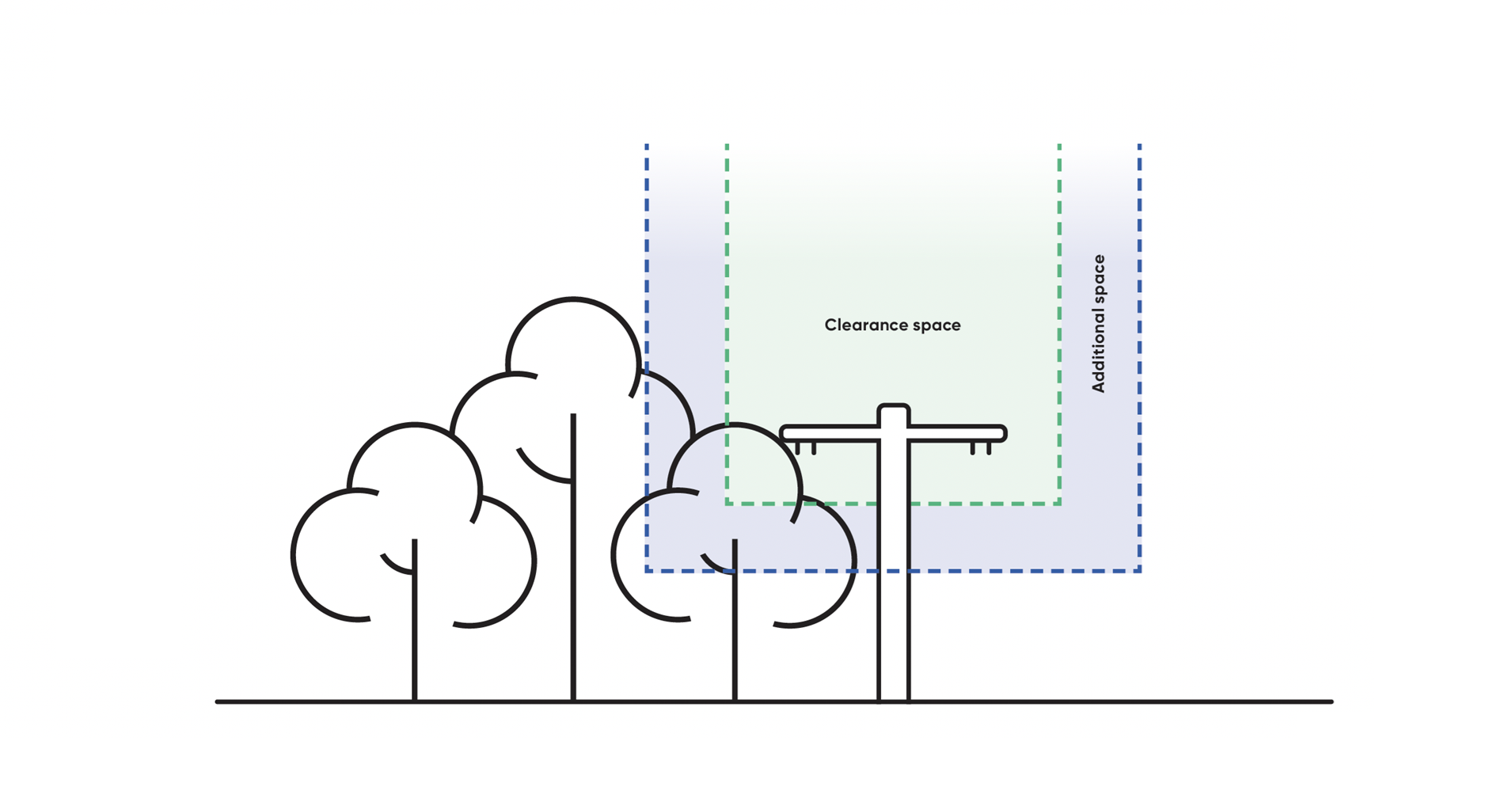Planting near transmission lines
These are the big towers that transport very high voltage electricity.
Because transmission lines move electricity at very high voltages, they generally run through easements. An easement is an area of land that’s reserved for important infrastructure.
These easements allow us to access the lines and limits what can be planted under and next to the lines. Easements vary in width depending on the voltage they carry.

When planting vegetation on an easement
- Choose species that do not grow taller than three meters.
- Scatter trees or shrubs across the easement. Up to 10% of the easement vegetation can be covered in trees and shrubs.
- Avoid planting any vegetation within five meters of towers to keep clear access at all times.
- Make sure vegetation doesn’t block vehicle access along the easement or through gates.
When planting vegetation next to an easement
- Make sure vegetation doesn’t block vehicle access or cause a fire risk if it falls onto the easement.
- These requirements may be different in special circumstances, such as in certain terrain like gullies or watercourses.
What trees are best to plant?
To find out what trees are best to plant based on your region, visit Best trees to plant.
Guidelines for maintaining vegetation
The safe distance between vegetation (trees, branches and shrubs) and powerlines and poles is called the minimum clearance space. To maintain the minimum clearance space, you should prune vegetation before it grows within:
- one meter of a service cable; or
- two meters from a bare wire private electric line.
Service cables are either a thick black cable or a silver grey or black twisted cable that is connected to the front of your property. Bare wire electric lines are generally bare metal and are part of private overhead electric lines (POELs) on private property.
We communicate directly with POEL customers so they’re aware of their rights and responsibilities. For more information, visit Private electric lines.

